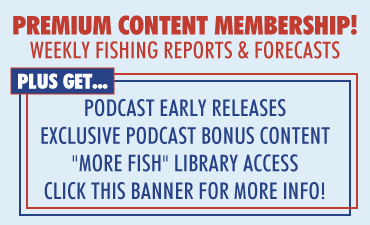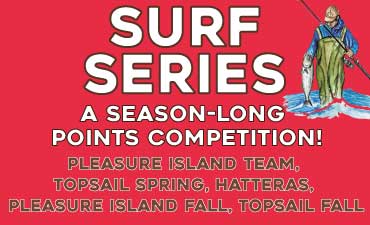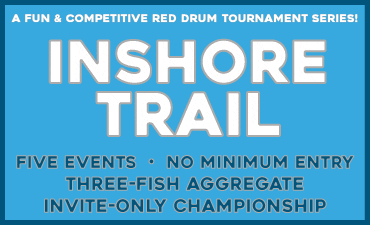Releases – June 14, 2012
The Carolina Beach Inlet Association is hosting a legislative breakfast June 21 in Raleigh aimed at raising awareness among state legislators about the importance of keeping our inlets open. The group has already received RSVP’s from 14 state representatives and senators and hopes to attract 25-30 to the event.
Representatives of the CBIA will conduct a presentation detailing the loss of funding for inlet maintenance, the consequences of the loss, and potential solutions to the problem. UNCW economist Chris Dumas will then take the floor and speak about the economic impact of our inlets, the amount of money they directly bring in, and what could be lost if the inlets aren’t maintained and navigable.
Whether they realize it or not, citizens all over the state have a stake in the inlets. If they close up, coastal property values will fall, the state will lose property tax revenue, and then be forced to look for new sources in the form of higher taxes or fees on everyone.
The CBIA urges all North Carolina citizens to contact their representatives and senators and request they attend the breakfast meeting.
The breakfast begins at 7:00 AM, and anyone interested is welcome to attend. Contact Laurie Womack at (910) 458-1981 for more information.
The sportfishing industry applauds the introduction of a large package of pro-sportsmen legislation in the Senate as an amendment to the Farm Bill. Introduced by co-chairs of the Congressional Sportsmen’s Caucus, Senators Jon Tester (D-Mont.) and John Thune (R-S.D.), the Sportsmen’s Act of 2012 addresses several key issues that are impacting the sportfishing industry and anglers.
The package features two bills that recently passed the House of Representatives as a part of the Sportsmen’s Heritage Act, including legislation that prevents a federal ban of lead fishing tackle and ammunition. The Sportsmen’s Act of 2012 features several other provisions that will advance the conservation of fish habitat and populations and increase recreational fishing opportunity.
“The Sportsmen’s Act of 2012 is the largest, most diverse pro-sportsmen legislative package introduced in recent memory,” said American Sportfishing Association Vice President Gordon Robertson. “The sportfishing industry thanks Senators Tester and Thune for addressing some of the biggest issues that are affecting sportsmen and women. From improving habitat conservation to increasing public access, passage of the Sportsmen’s Act of 2012 would represent one of the biggest advancements for recreational fishing in years.”
The Sportsmen’s Act of 2012 features 19 bills that promote our nation’s recreational fishing, hunting, and shooting heritage, eight of which will have significant specific impacts on the sportfishing community. Of particular note are:
The Hunting, Fishing, and Recreational Shooting Protection Act (S. 838) – This section will block ongoing attempts to ban lead in recreational fishing equipment and ammunition by clarifying the Toxic Substances Control Act. Recent attempts to overregulate sportfishing equipment in a non-scientific fashion by anti-fishing interests represent one of the largest threats to the sport.
National Fish Habitat Conservation Act (S. 1201) – This section will authorize the National Fish Habitat Partnership, an initiative that seeks to protect, restore, and enhance fish habitat on a range-wide scale. This non-regulatory partnership is the most comprehensive effort ever attempted to voluntarily conserve freshwater, estuarine, and marine habitats nationwide.
Billfish Conservation Act (S. 1451) – This section will conserve declining billfish populations by prohibiting the commercial sale and importation of billfish throughout the U.S., with an exception in the state of Hawaii and the Pacific Insular Area islands to preserve traditional fisheries. It is currently illegal to harvest or import Atlantic-caught billfish into the U.S., but billfish from other oceans come into U.S. markets in substantial numbers.
Report on Artificial Reefs in the Gulf of Mexico – This section would require the Department of the Interior to develop a report on its Idle Iron policy, which requires the removal of idle drilling platforms, in order to develop a coordination strategy between agencies and states. These platforms represent the world’s largest network of artificial reefs and provide habitat for marine species on an otherwise barren seafloor.
Making Public Lands Public Act (S. 901) – This section will address one of the most significant obstacles to sportfishing – lack of access to public lands and waters. This language will increase access to angling, hunting, and recreational shooting opportunities on federal lands, by directing 1.5 percent of the Land and Water Conservation Fund to ensure that fishing, hunting, and other recreational activities are accessible.
“There is no doubt that the thousands of anglers who have supported these individual provisions through KeepAmericaFishing played an important role in the introduction of this amendment,” said Robertson. “This clearly demonstrates the impact that anglers can have when speaking collectively with one voice. With passage of this bill, anglers will see the rewards of their efforts on the water.”
The Senate voted on June 7 to advance the 2012 Farm Bill discussions, which will cover the potential inclusion of the Sportsmen’s Act of 2012.
“While Sportsmen’s Act of 2012 addresses many of the key issues impacting recreational fishing today, there are still other legislative measures important to the sportfishing community that we hope to see move this year. With Congress’s support, we can overcome the obstacles facing sportsmen and women and improve conservation efforts nationwide,” Robertson concluded.
The Sea Turtle Advisory Committee to the N.C. Marine Fisheries Commission will meet at 6:00 p.m., June 21, at the N.C. Division of Marine Fisheries Central District Office, 5285 Highway 70 West, Morehead City.
If you have any questions, please contact Chris Batsavage at (252) 808-8009 or Chris.Batsavage@ncdenr.gov. You may also contact the Marine Fisheries Commission office at (252) 808-8022 or (800) 682-2632.
Recently, the NC Senate Agriculture and Environment Committee rolled several fisheries issues into one bill, Senate Bill 821. This new bill includes: (1) a ban on menhaden reduction fishing in North Carolina; (2) a requirement that a supermajority is necessary to override scientific recommendations from the Division of Marine Fisheries regarding measures needed to end overfishing or to rebuild overfished stocks; (3) a study of merging the Division of Marine Fisheries and the Wildlife Resources Commission; and (4) a study of coastal fishing license and boating fees.
These issues are at the top of CCA’s legislative agenda and the organization needs your help in making sure that the General Assembly enacts them this session. CCA request that you take a moment to contact your State Senator as soon as possible as action on this bill is expected very soon.
Ask your Senators to vote “YES” on SB 821 and remind them that recreational fishing creates jobs and stimulates economic activity in North Carolina. Tell them that protecting the resource is good for both the commercial and recreational fishing sectors.
Because Omega Protein will be making a strong push against this bill, CCA needs your message to focus on the ban on menhaden reduction fishing in North Carolina.
Click the following link to log in and send your message: www.votervoice.net/link/target/ccanc/26zMg3RE.aspx.
Recreational harvest of golden tilefish in the South Atlantic waters closed at 12:01 a.m. (local time) June 8, 2012. Recreational harvest will reopen at 12:01 a.m. (local time) on January 1, 2013. The 2012 recreational catch limit is 1,578 fish. The accountability measure for golden tilefish requires that the 2012 fishing season be shortened if the average 2010 and 2011 recreational landings exceed the annual catch limit.
Reports indicate the average 2010 and 2011 landings exceeded the annual catch limit; therefore, the recreational harvest of golden tilefish should close as soon as possible.
During the closure: Recreational harvest or possession of golden tilefish is prohibited. The closure applies in both state and federal waters for vessels which have a valid charter/headboat permit for South Atlantic Snapper-Grouper.
This closure is necessary to protect the golden tilefish resource. Currently, there is a regulatory amendment under review which could result in an increase to the annual catch limit for golden tilefish in coming years. Commercial harvest of golden tilefish for the 2012 fishing year closed on February 17, 2012. Therefore, all harvest of golden tilefish is prohibited in South Atlantic
waters until January 1, 2013.
This bulletin provides only a summary of the existing regulations. Full regulations can be found in the Federal Register.





